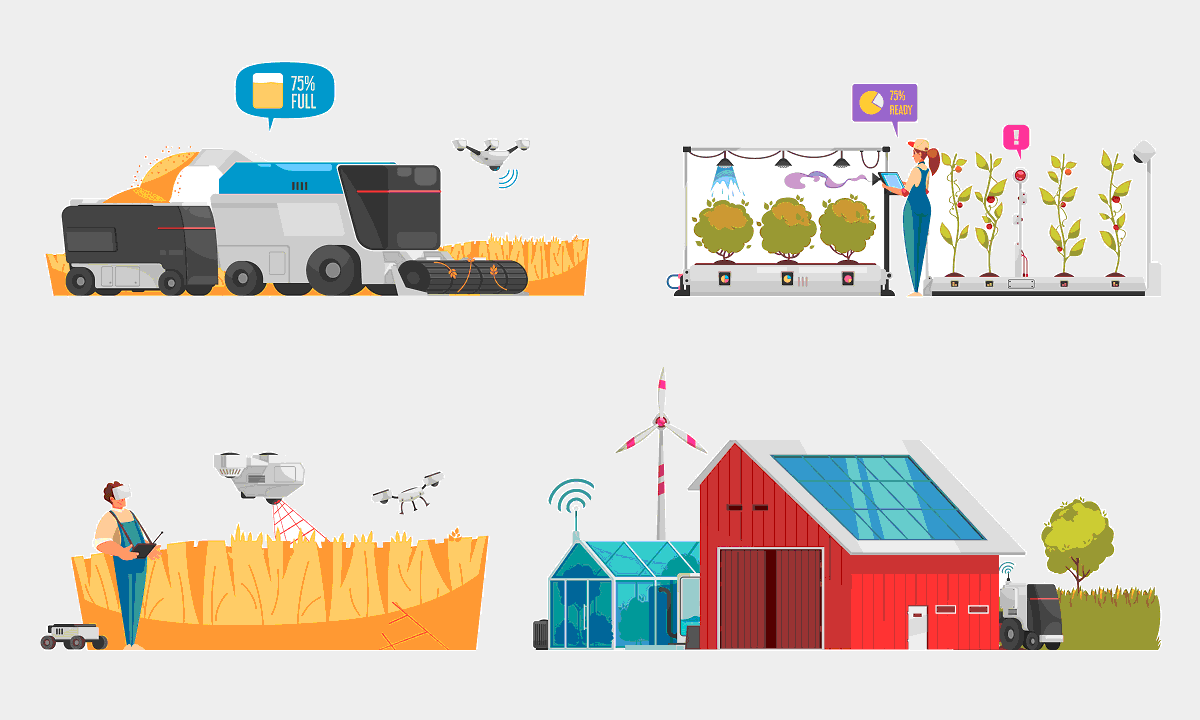
Digital technology has revolutionized every industry and agriculture is no exception. The impact of digital technology on agriculture has been a game changer and has the potential to bring about significant improvements in the industry. In this article, we will explore the benefits of digital technology in farming, the successful implementation of digital technology in agriculture, the challenges faced in its adoption, and the future trends and advancements in this field.
Overview of Digital Technology in Agriculture
Digital technology has transformed the way farmers operate and has had a profound impact on the agriculture industry. From precision agriculture technology to agricultural drones, digital technology has revolutionized the way farmers cultivate and harvest their crops. It has also made it easier for farmers to access important information such as weather forecasts, market prices, and crop management tools.
Benefits of Digital Technology in Farming
There are numerous benefits of digital technology in agriculture, some of which include:
- Increased agricultural productivity: According to a report by the Food and Agriculture Organization of the United Nations, digital technology has the potential to increase agricultural productivity by up to 70%.
- Improved crop management: Digital technology has made it easier for farmers to monitor their crops and make informed decisions. For example, precision agriculture technology, such as John Deere's Precision Agriculture technology, helps farmers make data-driven decisions that can improve crop yields and reduce costs.
- Better use of resources: Digital technology has made it possible for farmers to optimize their use of resources such as water, fertilizer, and energy. This not only reduces costs but also helps protect the environment.
- Enhanced supply chain management: Digital technology has improved supply chain management by providing farmers with real-time information on market prices and demand. This allows farmers to make informed decisions on what crops to plant, when to plant them, and how much to produce.
Examples of Successful Implementation of Digital Technology in Agriculture
There are numerous examples of successful implementation of digital technology in agriculture. Some of the most notable include:
- Use of drones for crop mapping and monitoring: Drones have become an indispensable tool for farmers, allowing them to quickly survey large areas of land, map their crops, and monitor crop health.
- Precision agriculture technology: Precision agriculture technology, such as John Deere's Precision Agriculture technology, is becoming increasingly popular among farmers. This technology uses sensors and other digital tools to collect data on soil health, weather conditions, and crop health. This data is then used to make informed decisions that can improve crop yields and reduce costs.
- Smart irrigation systems: Smart irrigation systems use sensors to monitor soil moisture levels and adjust watering schedules accordingly. This not only helps farmers conserve water but also improves crop yields by ensuring that crops receive the right amount of water at the right time.
Challenges Faced in the Adoption of Digital Technology in Agriculture
While digital technology has brought many benefits to agriculture, there are still challenges that need to be addressed in order to ensure its widespread adoption. Some of the challenges faced include:
- Lack of access to digital technology: Many farmers, particularly in developing countries, lack access to digital technology. This can limit their ability to take advantage of its benefits and compete with farmers in developed countries.
- Lack of technical expertise: Many farmers are not familiar with digital technology and may lack the technical expertise to use it effectively. This can be a barrier to adoption, particularly for older farmers who may be resistant to change.
- High costs: Some forms of digital technology, such as precision agriculture technology, can be expensive. This can be a barrier to adoption for smaller farmers who may not have the resources to invest in this technology.
Future Trends and Advancements in Digital Technology in Agriculture
continue from the line - Future Trends and Advancements in Digital Technology in Agriculture
Future Trends and Advancements in Digital Technology in Agriculture
As technology continues to advance, the impact of digital technology on agriculture will only continue to grow. Some of the future trends and advancements in this field include:
- Predictive Analytics: Predictive analytics will play a crucial role in the future of agriculture. It will allow farmers to predict crop yields and make more informed decisions about planting, fertilizing, and harvesting.
- Internet of Things (IoT): IoT will become increasingly important in agriculture as more and more devices become connected. This will allow for greater efficiency and precision in monitoring and managing crops.
- Artificial Intelligence (AI): AI will be used to analyze large amounts of data, identify patterns, and make predictions about crop growth and yield. This will help farmers make more informed decisions about planting, fertilizing, and harvesting.
- Autonomous Farming: Autonomous farming is an emerging trend in which machines and robots are used to perform tasks such as planting, harvesting, and monitoring crops. This will increase efficiency and productivity while reducing the need for manual labor.
- Precision Agriculture: Precision agriculture is becoming increasingly important in agriculture. It involves using technology to gather data and make decisions about planting, fertilizing, and harvesting crops. This technology will continue to improve and become more widely adopted in the future.
Conclusion
In conclusion, the impact of digital technology on agriculture has already been substantial, and it will only continue to grow in the future. From predictive analytics and IoT to AI and autonomous farming, the potential for innovation in this field is immense. By embracing these technologies, farmers, agricultural businesses, and governments can work together to revolutionize the industry and improve the lives of farmers everywhere.
Agricultural Science




